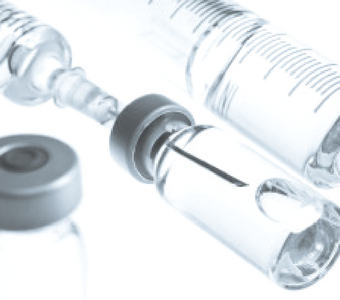Since our last report on Alexion Pharmaceuticals (ALXN) on April 5, shares have remained flat as continued concerns about the company’s manufacturing facilities and Soliris’ market expansion have weighed down the company’s stock price. However, Alexion’s Q1 2013 results, released last week, should put to rest some of the ongoing concerns. Shares rallied nearly 11% following a robust earnings & revenue beat in the first quarter, as well as slightly increased guidance for 2013. We expect that the company’s manufacturing issues are behind it; Soliris’ reach and market continue to grow; and there’s evidence that the company is preparing for more robust business development with a new hire. Alexion’s initial foray into orphan drug development with Soliris has been wildly successful for investors, and Alexion’s progressing pipeline illustrates further opportunity for investors with an eye for long-term opportunities.
Resolution of Manufacturing Issues
On March 27, Alexion disclosed that it had received an FDA warning letter related to its Rhode Island manufacturing facility, and on its Q1 call, the company provided new details about the FDA’s concerns, as well as what the company has done to rectify the situation. While the issue seems to be resolved, it was of sufficient importance that the company’s board of directors was involved in investigating and resolving the issue. As we noted in our April 5 report, the issue is not as material as it seems. On the Q1 call, CEO Leonard Bell reiterated that the company has about a year of Soliris inventory (4,000 patient years). Dr. Bell stated that Alexion submitted its response to the FDA earlier this month. As a reminder, the FDA’s concerns center on 2 aspects of Alexion’s manufacturing processes: 1) the company’s procedures for detecting bacterial contamination in Soliris batches, and 2) Alexion’s overall quality control system. Dr. Bell and other executives spoke at length about the company’s responses to these concerns. Steve Squinto, Alexion’s head of global operations, stated that the contamination was caused by soil-based microbial agents, introduced into the Rhode Island facility via one or more employees as a result of a mis-engineered floor drain, which has since been corrected. In addition, equipment-cleaning procedures have been improved. The company is also in the process of crafting an assay to demonstrate the effectiveness of its revised pre-purification procedures.
In regards to the FDA’s 2nd concern, Alexion has hired independent industry experts to review its quality control processes and craft changes to satisfy the FDA’s concerns. We expect more color on this review when the company reports its Q2 2013 results. From a financial perspective, these changes are likely to be minor. CFO Vikas Sinha noted that they will be expensed into the company’s R&D line, and that any incremental expenses related the FDA’s warning letter are accounted for within the company’s guidance (more on that a bit later). Furthermore, as we noted in our last report, Alexion is continuing to diversify its Soliris supply chain, and the company reiterated that its 3rd manufacturing facility will be approved at the end of this year, further de-risking Alexion’s manufacturing capabilities.
A Beat & Raise Quarter
Alexion’s Q1 2013 results beat estimates on both the top and bottom lines. Pro forma EPS came in at $0.65 (+44.44% Y/Y), beating consensus estimates by 5 cents, and revenue came in $338.941 million (+38.49% Y/Y), beating consensus estimates by $2.34 million. The beat was driven by continued improvements in Alexion’s margin structure; gross margin rose by 115 basis points to 89.85%, and the company’s operating margin expanded to 41.35%, up from 39.69% a year ago. Sequentially, the company’s gross margin fell slightly from 89.93%, but operating margins rose from 39%, as Alexion continues to see favorable operating leverage. The company also utilized its Q1 2013 earnings as an opportunity to raise full-year guidance; the company now expects 2013 revenue of $1.5125 billion (versus $1.4975 billion originally) at the midpoint of guidance, and EPS of $2.92 (versus $2.87 originally) at the midpoint of guidance. Both came in ahead of consensus estimates for 2013, which called for revenue of $1.51 billion and EPS of $2.90. Importantly, Alexion’s guidance reflects expectations of continued weakness in the yen (affecting revenue), as well as further growth in R&D expenses, relating to an increase in participation in medical conferences, as well as further expense growth tied to the company’s pipeline.
Alexion ended the quarter with just over $1.02 billion in cash & investments, and debt of $149 million, putting the company on sound financial footing. Alexion announced alongside its Q1 results that it has hired Saqib Islam, formerly the managing director of Credit Suisse’s healthcare and diversified industrials capital markets business, as the company’s new Chief Strategy & Portfolio Officer. On the company’s conference call, Dr. Bell noted that Islam’s role will be broad, and hinted that this will serve the company’s ambition to “reach for higher levels,” stating,
Saqib and I have known each other for quite a while, and I have enormously high regard for his strategic thinking advice. And Saqib will play a very important role, not only from a strategic positioning development so that we can really build on the enormous success we’ve had to date in business development and developing our strategies. We’ve been very, very successful. And it’s an indication of our ambition really to reach for higher levels, as we’ve been telegraphing for some time. And I think it’s a tremendous opportunity that Saqib joins from a strategic perspective. But at the same time, Saqib will have important responsibilities across the company by helping to manage a variety of operations.
Alexion has long been a shrewd acquirer, conducting targeted deals such as Enobia Pharmaceuticals and Taligen Therapeutics to expand its pipeline, and the hiring of Saqib Islam as the company’s new Chief Strategy & Portfolio Officer could be a signal that Alexion is preparing to be more active on the M&A front, incrementally positive for Alexion’s long-term revenue diversification, and therefore its share price.
Soliris: Continued Market Expansion
Q1 marked another quarter of market expansion for Soliris, both in PNH and aHUS. Alexion’s management team took time to address the ongoing situation in England relating to Soliris reimbursement for the treatment of aHUS. Dr. Bell & David Hallal, Alexion’s CCO, stated that the English government has provided the company with new clarifications relating to Soliris reimbursement. The government will now provide funds for the use of Soliris in any new cases of aHUS, and patients have already begun to be treated. Alexion ahs also begun to deploy new awareness and diagnostic initiatives to identify new aHUS patients, and noted that in the long run, most English aHUS patients will be newly diagnosed, a similar pattern to what is occurring in the United States. In the United States, the company noted that Soliris uptake in aHUS is steadily continuing, with the majority of patients newly diagnosed with aHUS. Alexion is also making progress in expanding Soliris access across continental Europe. Inpatient reimbursement has been secured in Germany, thereby making Soliris in aHUS covered in both outpatient and inpatient settings, and Alexion’s launch efforts there are underway. Italian reimbursement discussions are continuing, and in the interim, Soliris is being distributed through early access programs. In Spain, Soliris has begun to be distributed at the local level as reimbursement discussions continue with the Spanish national government. In the Netherlands, initial access has also been secured, due to the granting of add-on status to Soliris by CVZ. And in France, reimbursement discussions are continuing as well, with negotiations forecasted to progress further by mid-2013. Pre-commercialization activities have also begun in Japan, and the company reaffirmed its forecast of a 2014 launch for Soliris in aHUS in Japan, as well as a late 2013 launch of Soliris for PNH in South Korea. Although Q1 2013 was not an exciting quarter in terms of Soliris results, it reaffirmed the continued global growth potential of Soliris, as well as Alexion’s ability to carry on multiple market expansion initiatives simultaneously, all while continuing to invest in its pipeline.
Pipeline Updates
With R&D expenses up over 65% in Q1 2013, it’s clear that Alexion is continuing to make meaningful investments in its pipeline. Q1 2013 featured little in the way of pipeline breakthroughs, but did feature incremental progress across the company’s portfolio of orphan disease indications. The asfotase alfa natural history study in infants has now completed enrollment, and enrollment in the Japanese trial of asfotase alfa is ongoing. The company has also indicated that it will be meeting with regulators in mid-2013 to discuss the regulatory path for asfotase alfa, and receive clarity as to whether or not a juvenile trial will be needed. That being said, Alexion has reaffirmed its target for filing for regulatory approval in the United States and Europe during 2014.
Enrollment is continuing in Phase I trials of ALXN-1102 & ALXN-1103, the company’s alternative pathway complement inhibitors. These Phase I studies are set to be completed within the first half of 2013, and meetings with the FDA will occur later in the second half of 2013 to discuss the clinical pathway for the 2 compounds. On its call, Alexion also provided an update on ALXN-1007; the company plans on discussing multi-dose Phase I trials with the FDA later this year, with the goal of exploring development in multiple ultra-rare indications. So far, Alexion has not revealed exactly what potential indications ALXN-1007 may target, but Dr. Bell said that the company may be in a position to provide investors with more clarity on the compounds on “future calls,” perhaps even in 2013. A shift of focus to ALXN-1007, as well as Alexion’s other clinical programs, will likely be positive for its shares, highlighting the company’s commitment to revenue diversification; the company’s longer-term growth potential has not diminished.
Alexion’s plans for a late 2013 filing for regulatory approval of Soliris in STEC-HUS have been reaffirmed, as have plans for trials of Soliris in NMO and myasthenia gravis, after what Alexion has called “positive discussions” with regulators.
Conclusions
Alexion Pharmaceuticals is continuing to succeed on a variety of fronts. Its core Soliris franchise is showing continued growth as the company’s addressable market expands. At the same time, Alexion is making meaningful progress in moving its pipeline through clinical development, and in the 2nd half of 2013, there will likely be a shift in focus to the company’s development programs as a number of trials commence and new Soliris filings occur. This, alongside the hiring of Saqib Islam and hints of a more active business development program, should offer confidence in the company’s long-term growth potential.
In connection with ALXN, PropThink has taken a long position.



